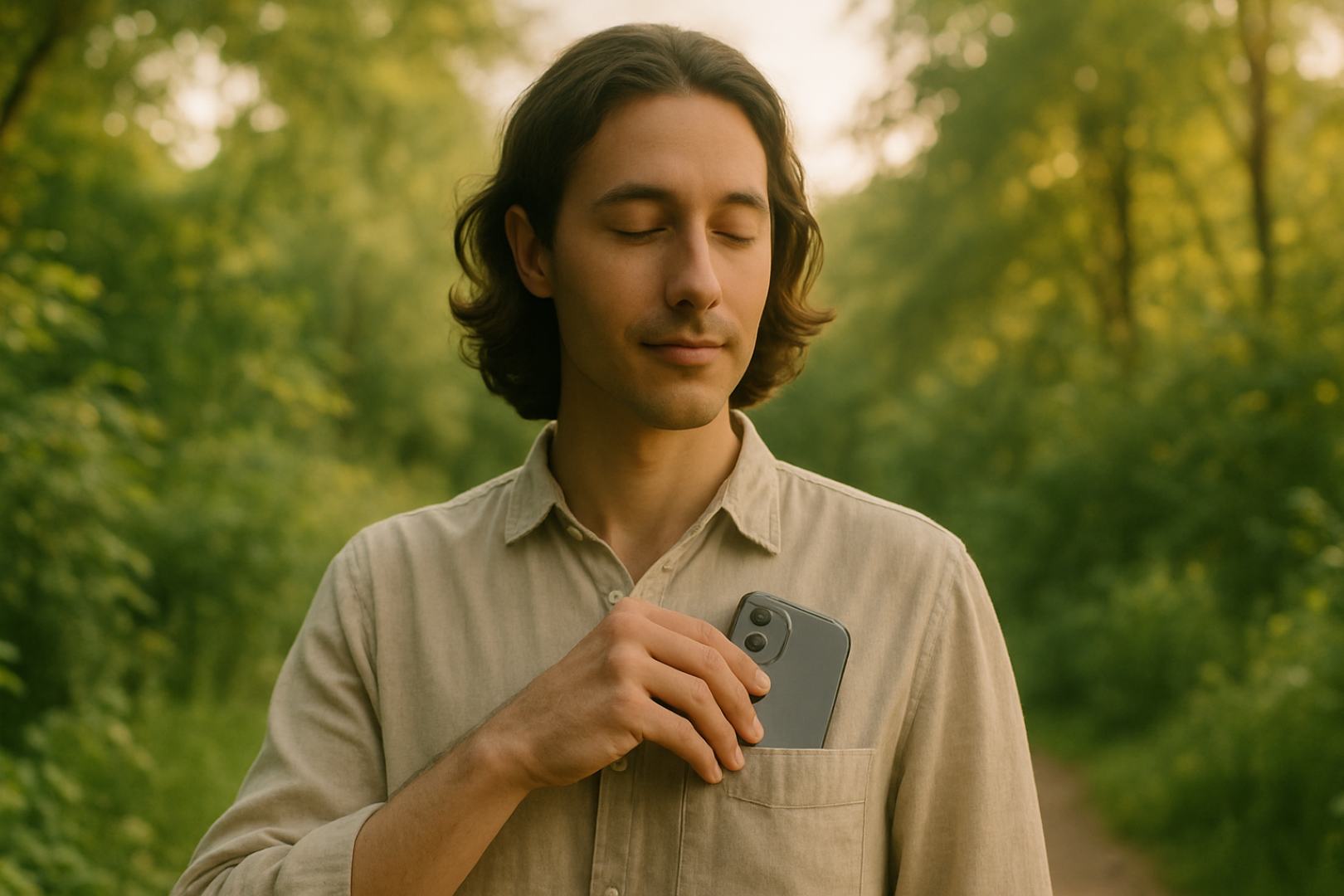That “Always On” Feeling
Does this sound familiar? You wake up, and the first thing you reach for is your phone. You scroll through notifications before your feet even hit the floor. Throughout the day, your screen is a constant companion—endless emails, buzzing group chats, and a social media feed that never, ever stops.
By the end of the day, you feel drained, unfocused, and maybe even a little anxious.
If you’re nodding along, you might be ready for a digital detox. It’s a simple concept that has become essential for mental clarity in our hyper-connected 2025 world. This guide will walk you through exactly what it is, why you might need one, and how to do it without feeling like you’ve dropped off the face of the earth.
First, What Exactly Is a Digital Detox?
Let’s clear one thing up: a digital detox is not about throwing your smartphone in a river and moving to a cabin in the woods (unless you want to!).
In simple terms, a digital detox is a set period when you voluntarily step away from your digital devices. This includes smartphones, laptops, tablets, and social media.
Think of it like a vacation for your brain. You’re giving your mind a chance to rest, recharge, and refocus without the constant pings, dings, and blue light of a screen. The length is up to you—it could be a full weekend, one evening a week, or even just the first hour of your day.
5 Signs You Desperately Need a Digital Detox
How do you know it’s time to unplug? Your mind and body often send clear signals.
- You Can’t Sleep Well: You scroll in bed until your eyes get heavy, but your mind still feels wired. The blue light from screens can seriously mess with your natural sleep cycle.
- You Feel Anxious Without Your Phone: The thought of leaving your phone at home for an hour gives you a genuine feeling of panic or “FOMO” (Fear Of Missing Out).
- You’re Constantly Comparing Yourself to Others: Spending hours on Instagram or TikTok has left you feeling like your life isn’t as exciting or perfect as everyone else’s.
- You Can’t Focus on One Thing: You find yourself trying to watch a movie, text a friend, and scroll through social media all at the same time. Deep focus feels impossible.
- You Feel Uninspired or Bored: Despite having access to all the information in the world, you feel a lack of creativity and genuine excitement.
Your Simple 4-Step Guide to a Successful Digital Detox
Ready to try it? Here’s how to get started without feeling overwhelmed.
Step 1: Set a Clear, Realistic Goal
Don’t go from 10 hours of screen time to zero overnight. Start small. Your goal could be:
- The Mini-Detox: No phone during meals.
- The Evening Detox: No screens after 9 PM.
- The Weekend Detox: Go phone-free from Saturday morning to Sunday evening. Choose what feels achievable for you.
Step 2: Plan Your Offline Time
The biggest reason detoxes fail is boredom. If you don’t plan what you’ll do instead, you’ll instinctively reach for your phone. Make a list of offline activities you enjoy:
- Read a book that’s been on your shelf for months.
- Go for a long walk in a local park.
- Cook a new recipe from scratch.
- Work on a puzzle or play a board game.
- Catch up with a friend in person.
Step 3: Let People Know
Send a quick message to close friends and family. A simple “Hey! I’m doing a digital detox this weekend to recharge, so I’ll be offline. I’ll get back to you on Monday!” manages expectations so nobody worries, and you won’t feel guilty for not replying.
Step 4: Create a “No-Tech Zone”
Designate a physical space where devices aren’t allowed, like your bedroom or the dining table. To take it a step further, turn off all notifications (except for calls, if you need them for emergencies). Out of sight, out of mind!
The Amazing Benefits: What Happens After You Unplug?
Taking a break from the digital world, even for a short time, can have incredible benefits:
- Deeper Sleep: You’ll fall asleep faster and wake up feeling more refreshed.
- Improved Focus: Your ability to concentrate on a single task will skyrocket.
- Reduced Anxiety: You’ll feel a sense of calm and presence without the pressure of constant updates.
- More Meaningful Connections: You’ll have more quality, face-to-face time with the people who matter most.
Conclusion: It’s About Balance, Not Banishment
The goal of a digital detox isn’t to decide that technology is evil. It’s about taking back control. It’s a powerful reminder that your phone is a tool that should serve you, not the other way around.
By intentionally stepping away, you can return to your digital life feeling more mindful, present, and in charge.
What’s the first offline activity you would do on a digital detox? Share your ideas in the comments below!
You need to login in order to like this post: click here

Leave a Reply
You must be logged in to post a comment.